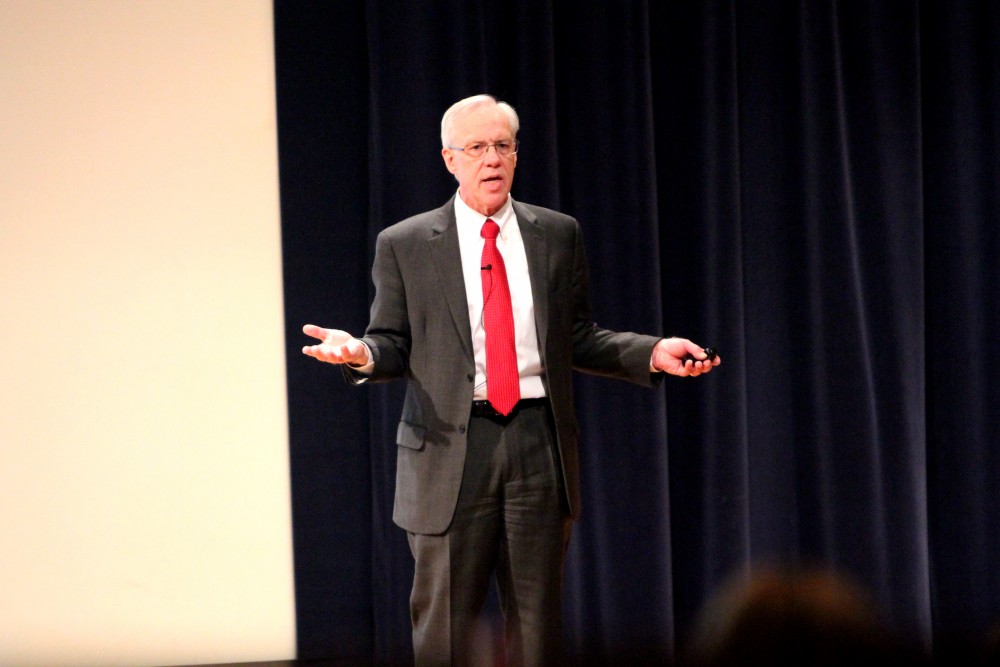Leadership series highlights nonprofit culture

GVL / Emily Frye David Renz
Feb 19, 2015
Leadership is one of the key values that Grand Valley State University takes pride in, and students can find many opportunities to participate in strengthening or exercising their leadership skills throughout the year.
Through the College of Community and Public Service, the Johnson Center for Philanthropy has created the Strategic Leadership Series to bring national philanthropic leaders into West Michigan to speak about a range of topics relating to the field.
The third installment of SLS took place on Wednesday afternoon with a lecture titled “Culture in the Board Room.” The four-part series is primarily geared toward students and professionals in the nonprofit or public service field, but it remains open to anyone interested in attending.
“Nonprofit boards face many challenges and opportunities,” said Annie Osburn, nonprofit services program manager for the center. “Boards with essential tools and knowledge…help their organizations run well.”
David Renz served as the speaker for the event, which was centered around offering different tactics and strategies to event attendees in an effort to bring different cultures into the boards of nonprofits. Renz incorporated his own research into the lecture’s theme.
“Culture is vital to organizational success,” Osburn said. “A healthy culture in the board room is a key piece of (that) success.”
Renz currently holds a chair in the Department of Public Affairs at the University of Missouri – Kansas City. In the past, he served as a government executive in Minnesota where he received much of his education.
His research focuses on the leadership and management side of nonprofit and public service business, broadening the scope of the event to more than just professionals and nonprofit students.
Renz was chosen for the event due to the work he’s performed nationally. He founded the Nonprofit Academic Centers Council and the Forum of Regional Associations of Grantmakers.
The Strategic Leadership Series aims to challenge local nonprofit organizations to increase their impacts and sustainability by bettering their organizational culture. The Johnson Center developed such a series in an effort to bring fresh thinking and the potential to do good to the region by going beyond the typical nonprofit topics and challenging the usual ways that organizations bring about change.
In the past, the SLS focused on how to build and incorporate philanthropy culture into sustainable organizations.
“(The Johnson Center) believes learning curves shouldn’t get in the way of impact,” Osburn said.
The SLS events are free for students and $10 for professionals. Registration is required and available through The Johnson Center’s website.
For more information about future events hosted by The Johnson Center for Philanthropy, visit its website at
www.johnsoncenter.org.























